| Article ID | Journal | Published Year | Pages | File Type |
|---|---|---|---|---|
| 2010761 | Pharmacological Reports | 2013 | 6 Pages |
BackgroundFibrates were found to reduce cytokine release and low-grade inflammation in patients with impaired glucose tolerance. The aim of this study was to investigate whether these effects of fibrates may be potentiated by metformin treatment.MethodsThe study included 43 patients with isolated impaired glucose tolerance and normal plasma lipids who had been treated for at least 6 months with micronized fenofibrate (200 mg daily). These subjects were randomly assigned to 12 weeks’treatment with either high dose metformin (3 g daily in three divided doses) or placebo. Plasma lipids, glucose homeostasis markers, monocyte cytokine release and plasma C-reactive protein levels were determined before randomization and at the end of the treatment.ResultsMetformin treatment reduced plasma C-reactive protein levels and monocyte release of tumor necrosis factor-α and interleukin-6, as well as tended to reduce monocyte release of interleukin-1β and monocyte chemoattractant protein-1, which was accompanied by an improvement in insulin sensitivity.ConclusionsOur results show that high-dose metformin produces monocyte-suppressing and systemic anti-inflammatory effects in fibrate-treated patients with isolated impaired glucose tolerance. This suggests that fibrate-metformin combination therapy may bring clinical benefits to impaired glucose tolerance patients at high cardiovascular risk.
